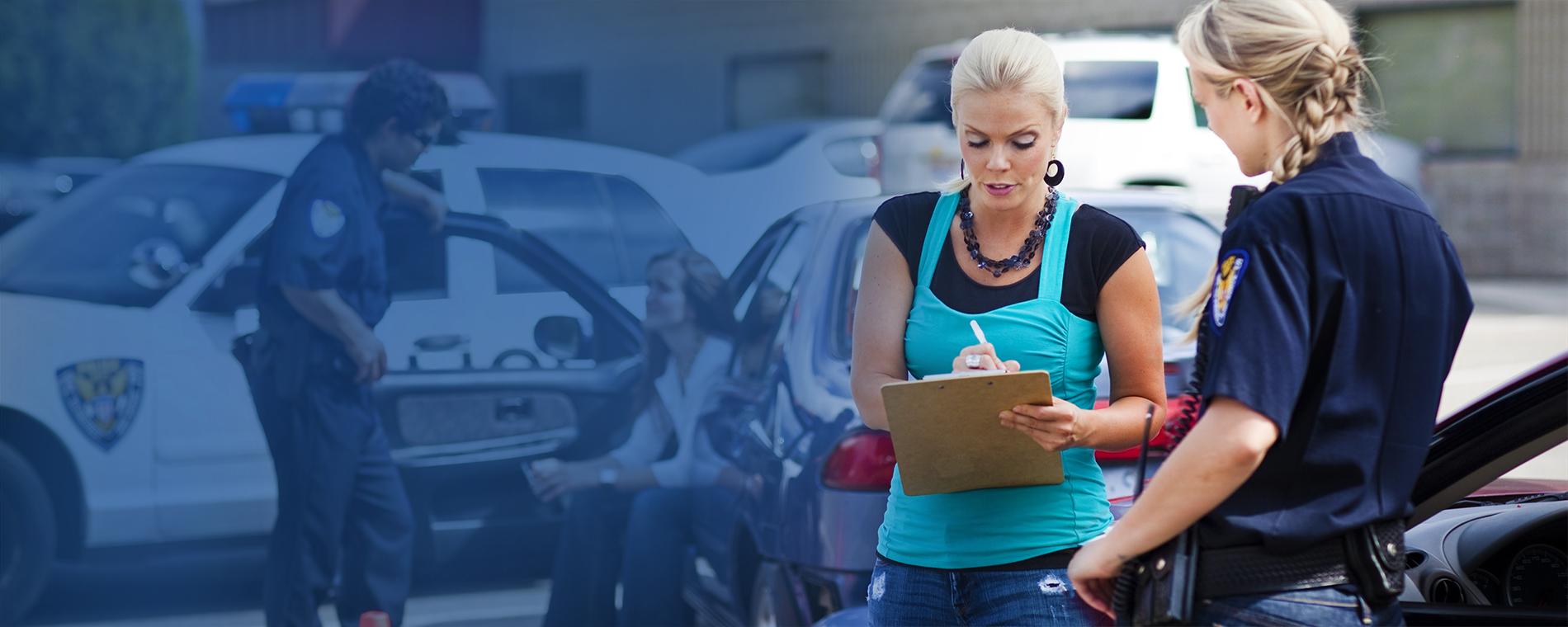Picture this: You’ve just been in a minor car accident.
You had a civil discussion with the other driver and exchanged insurance information. Now all that’s needed is to call your insurance company and file a claim, right?
Not so fast.
There are four very good reasons to contact law enforcement to report an accident.
- You may be legally required to do so. State laws vary. Some require you to report an accident that involves an injury; others require you to do so if the cost to repair the damage is more than a specified amount – usually $1,000 or $2,500. It’s a good idea to err on the side of caution and make the report.
- Your insurance company may need the police report to establish fault status. Your adjuster would most likely use official documentation to establish which driver was at fault. The other driver may admit causing the accident while on the scene, but may have a change of heart afterward when he or she realizes the financial implications. A police report will establish the facts of the accident and allow your claim to be processed more quickly.
- The other driver may later claim more damage than was immediately apparent. While some damage is legitimately not visible at the accident site, a common tactic of insurance fraud is to claim more damage than the accident caused. Once away from the accident site, drivers may intentionally inflict additional damage to their vehicle in order to inflate the claim payment.
- Injuries develop over time. You may have received an injury of which you are not immediately aware. If you were not at fault, and if you have no police report documenting the incident and supporting your not-at-fault status, the other driver’s bodily injury liability coverage may not pay to cover the cost of your medical treatment. The other driver could even deny the accident ever occurred.
Remember: You never want your claim settlement to come down to your word against the other driver’s.
You may also have to file a DMV/RMV report.
Some states require you to also report accidents to the Department of Motor Vehicles (DMV) or the Registry of Motor Vehicles (RMV); if you don’t comply, they may impose penalties that could include fines and/or suspension of your driver’s license. State laws vary, so make sure to contact your DMV/RMV for guidelines.
Police reports protect you.
An official police report not only makes the claim process go faster, but also can provide the documentation you need to help protect you from fraud.
Contact Us
Our Risk Coaches™ are licensed insurance professionals who are trained to look at coverage from your perspective. They’re glad to help you navigate the often-perplexing world of insurance coverage. Contact your local Risk Coach professional or call us at 800.342.5342, Monday through Friday from 8:00 a.m. to 8:00 p.m. ET.



